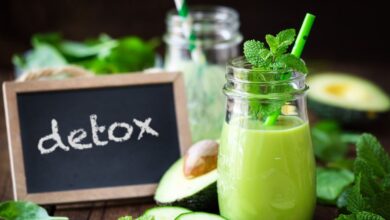What to Eat When Suffering from Headaches?

People experience different types of headaches, and the causes and symptoms of headaches vary from person to person. Headaches can be primary—not caused by something else—or secondary—resulting from injury, medications, illnesses, sinusitis, caffeine withdrawal, etc.
Most types of headaches do not last long and can be controlled, such as stress-related headaches or those due to tension or lack of sleep. Others, like migraines, can be debilitating, lasting for days or weeks.
Some well-known types of headaches include:
- Migraine: Causes intense pulsating pain in one area of the head or neck, accompanied by other symptoms like sensitivity to light and sound, nausea, and changes in vision.
- Tension-type headache: Also known as a stress headache, it causes mild to moderate dull pain. Some describe it as feeling like a band is tightened around the head.
- Cluster headache: Causes intense pain, usually on one side of the head or around one eye, and may come with other symptoms like a runny nose or teary eyes.
- Sinus headache: A secondary headache caused by pressure from inflammation. It typically comes with other sinus symptoms like congestion, swelling, and itchy eyes.
Foods and Drinks to Alleviate Headache Symptoms:
- More Water:
- Drinking enough water is crucial for all systems and cells in the body and can help reduce or avoid headaches by keeping a person hydrated. Even mild dehydration can lead to various symptoms, including headaches.
- Herbal Tea:
- Herbal teas can help reduce headache symptoms by providing hydration and containing pain-relieving ingredients.
- Chamomile tea may help with issues like insomnia and anxiety, potentially aiding tension-type headaches.
- Peppermint tea is believed to help relieve congestion and pressure in the sinuses, assisting with sinus headaches.
- Ginger:
- Ginger contains natural oils with chemical compounds important for helping those with headaches find relief. It increases serotonin levels, thus reducing inflammation. Research has shown a significant decrease in the severity of headaches in patients with acute migraines without aura. Ginger can be consumed in various forms, such as powdered ginger, ginger tea, or ginger supplements.
- Avocado:
- Avocado is rich in magnesium, which is linked to potentially reducing the occurrence and severity of migraines and headaches. Including avocado as part of a balanced diet contributes to maintaining adequate magnesium levels, which may positively impact the management of these conditions.
- Fatty Fish:
- Fatty fish, such as salmon, mackerel, and herring, are rich in omega-3 fatty acids EPA and DHA, which have anti-inflammatory properties. They also contain B vitamins, including riboflavin (B2), proven to help with migraine attacks. Studies have also found that salmon contains coenzyme Q10 and vitamin D, providing relief for migraines.
- Raw Nuts:
- Nuts are rich in magnesium, which alleviates headaches by relaxing blood vessels. They also contain a significant amount of vitamin E, which studies suggest may help control migraines with aura and hormone-induced migraines. For some individuals experiencing headaches, relief can be found by eating a handful of almonds or other nuts. Other suitable options include walnuts, cashews, and Brazil nuts.
- Fruits:
- Certain fruits are rich in magnesium and potassium. Some studies suggest that potassium may help alleviate pain in migraines by contributing to the healthy functioning of nerves. Bananas are helpful for headaches as they deliver a dose of potassium, magnesium, B vitamins, and complex carbohydrates—all of which contribute to reducing headache pain. Other high-water-content fruits can combat dehydration-induced headaches. Suitable choices include apricots, bananas, figs, raspberries, watermelon, and melon.
- Whole Grains:
- Whole grains contain complex carbohydrates and work to increase glycogen stores in the brain. They help alleviate headache pain, as low blood sugar (hypoglycemia) can trigger headaches. One study found a connection between iron-deficiency anemia and migraines in women. Whole grain foods provide a wealth of nutrients, including vitamin E, B vitamins, iron, coenzyme Q10, magnesium, and fiber. Suitable options include quinoa, barley, buckwheat, bulgur, oats, and whole-grain bread.
While these foods may contribute to headache relief, individual responses may vary. It’s important to maintain a balanced diet and consult with a healthcare professional for personalized advice.



